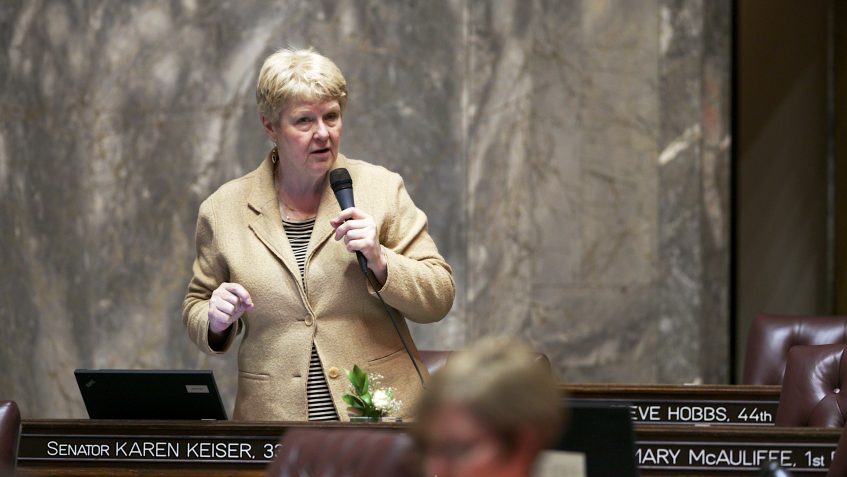Dear Neighbors,
We are fast approaching the midpoint for this year’s legislative session, and I am so pleased to report that we finally achieved an important goal — passage of the Dream Act. The Dream Act is about making sure that all children have an equal opportunity to graduate from high school, access higher education and reach for the American Dream. The Dream Act is for undocumented students who have grown up here, gone to school here, paid taxes here and have families who work here and contribute to our economy.
The Senate’s Republican majority caucus finally put politics aside to pass the Dream Act, and joined us in making sure the American Dream is alive for all our kids. The vote was strong, with all 23 members of the Democratic caucus and 10 Republicans, along with the two “MCC” members giving the bill 35 votes. The bill now returns to the House for concurrence. The House passed the bill to the Senate on Jan. 13, the very first day of the session, so the importance of this milestone should be clear.
A lengthy floor debate earlier this week centered on a proposed Constitutional Amendment to lock in tax loopholes under the guise of limiting tax increases. The legislature has a history of enacting special interest tax loopholes. Every year we enact at least a few more tax breaks for business interests. It has not enacted a state sales tax increase in more than 30 years. I rose to speak about the unfairness of allowing a small minority of 17 legislators out of 147, to lock in those tax loopholes. You can see and hear my floor speech by clicking here.
I was also deeply disappointed this week to see two other important health care bills I have carried be killed by the committee chair who refused to put them up for a vote. SB 6233 would have given small business entrepreneurs a B&O tax break if their health care insurance premiums significantly increased this year. Under the Affordable Care Act, some “group of one” policies were cancelled and were replaced with more expensive policies. This temporary tax break would have helped several thousand small businesses as they transition to new, hopefully lower cost, plans next year.
The other bill killed by the Health Care Committee chair was SB 6170, my proposal to address health disparities among different ethnic groups with training in cultural competency for medical providers. Our district has a very diverse population, from Koreans who seem to disproportionately suffer from some stomach cancers to Somalis who are not always able to communicate with providers about their concerns, and many many other communities of color who feel their cultural preferences are not well understood by some in the medical community. I hope to bring this bill forward again next year.
I am sad to report that, despite my repeated requests, the chair of the Senate Health Committee refused to hear my bill to give the state authority to implement a federal Basic Health Plan. The bill, SB 6231, did not obligate the state to set up the federal BHP; it simply gave the state the flexibility to look at ways to better serve individuals and families who are not able to qualify for Medicaid but not economically strong enough to maintain private health insurance, even with the tax subsidies of our health exchange.
One of my favorites is SB 6214, to create a state Alzheimer’s plan to promote early detection and treatment for the illness and to coordinate existing resources to improve communications and services to patients and their families. I am very pleased to be able to tell you that this bill passed out of committee with a unanimous vote.
It is also ramp-up time for development of our budgets. As I reported earlier, I have been honored to be elected by my caucus to lead on the state’s capital budget. It is a terrific opportunity to shape the future of our state. We use capital budget funds to build our schools and colleges, public health facilities, housing, prisons, parks and recreation resources.
In past years, I have focused my attention on the operating budget, which pays for operating our schools and colleges, health services, housing services, prisons, parks and recreation resources. Working on the capital budget side of the equation is a fascinating shift in perspective, and I am learning a lot about financing as well.
Finally, some of you may be aware that I have openly opposed a Republican bill that would eliminate the State Insurance Commissioner position, which is an elective office, and replace it with a board appointed by the Republican and Democratic caucuses. To hear my take on this subject, you can listen to an interview that aired on KIRO radio last evening by clicking here.
Until next week, I am hoping that your family is keeping safe and warm during the cold spell!




